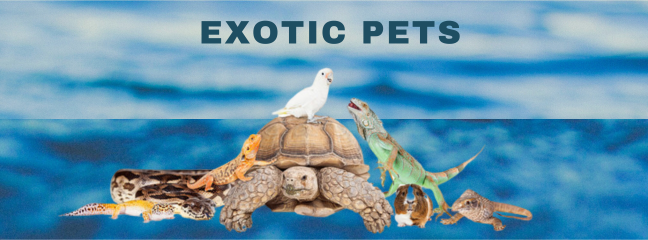
Are you considering adding a unique and fascinating companion to your household?
Exotic pets have gained significant popularity in recent years, captivating pet enthusiasts with their extraordinary beauty and distinctive characteristics. Whether it’s the allure of owning an alien reptile, mammal, bird, or even an aquatic creature, this guide will help you choose the best exotic pet.
From understanding the factors to consider before bringing an exotic pet home to providing proper care and addressing public safety concerns, this comprehensive guide covers everything you need to know.
Definition and Allure of Exotic Pets:
Exotic pets have gained considerable popularity as unique and captivating companions. These animals, often rare or non-traditional, possess distinct qualities that make them fascinating to pet owners. From stunning appearances to intriguing behaviors, exotic pets offer different kinds of companionship.
Factors to Consider Before Choosing an Exotic Pet:
Before diving into exotic pets, it’s crucial to consider several factors. These include the specific care requirements of the pet, legal and ethical aspects of ownership, and the financial responsibilities involved. By thoroughly considering these factors, you can ensure a pleasant and fulfilling relationship with your chosen exotic pet.
Types of Exotic Pets:
Exotic pets come in various categories, each with its own set of unique characteristics and care needs. Let’s explore the different types of exotic pets and what makes them exceptional choices for pet enthusiasts.
1. Exotic Reptiles:

Reptiles make fascinating and captivating pets with unique advantages that appeal to many pet owners. Their intriguing characteristics, such as their scaly skin, ability to adapt to different environments, and low maintenance requirements, make them popular among exotic pet lovers.
- Advantages of Owning Reptilian Pets:
Reptiles make fascinating pets due to their captivating behaviors and low maintenance requirements. They offer a unique opportunity to observe their instincts and behavior up close. Additionally, reptiles can be excellent for individuals with allergies or limited living spaces.
- Popular Species of Exotic Reptiles:
When considering reptilian pets, several species stand out as popular choices. These include Bearded Dragons, Ball pythons, Leopard Geckos, Boa Constrictor, Green Iguana, Tokay Gecko, Savannah Monitor, Corn snakes, and red-eared slider turtles. Each species has specific care needs and distinct traits that make them captivating companions.
- Providing a Suitable Habitat for Reptile Pets:
Creating a suitable habitat is essential for the health and well-being of reptilian pets. Factors such as temperature, lighting, humidity, and providing hiding spots and proper substrates play crucial roles in reproducing their natural environments.
2. Exotic Mammals:
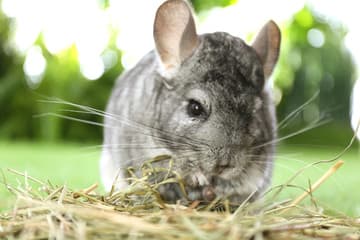
Exotic mammals offer a different kind of companionship with their unique characteristics and behaviors. There is a wide variety of exotic mammal pets, from small rodents to primates. However, it’s essential to recognize that exotic mammals have specific care requirements and may not be suitable for everyone.
- Unique Characteristics of Exotic Mammal Pets:
Exotic mammals offer a combination of charm and uniqueness that appeals to many pet owners. From the playful and mischievous behavior of sugar gliders to the docile nature of hedgehogs, each species brings its own set of distinctive traits to the table.
- Common Exotic Mammal Pets:
Some most commonly kept exotic mammal pets include sugar gliders, Ferrets, hedgehogs, guinea pigs, dwarf rabbits, and chinchillas. These furry companions can provide endless joy and entertainment while requiring specific care to ensure their well-being.
- Meeting the Dietary and Environmental Needs of Exotic Mammals:
Feeding exotic mammals a nutritionally balanced diet is essential to their overall health. It is crucial to research and understand their dietary requirements, including fresh fruits, vegetables, and specialized feeds. Creating an environment that mimics their natural habitat, including providing hiding spots, climbing opportunities, and appropriate bedding, is essential for their mental and physical well-being.
3. Exotic Birds:
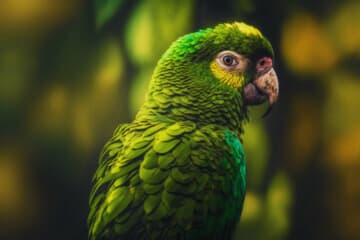
Exotic birds are renowned for their beauty, intelligence, and ability to mimic human speech. Their vibrant plumage and charming personalities make them popular for those seeking avian companionship. However, owning an exotic bird requires commitment and dedication to its care needs.
- Beauty and Intelligence of Exotic Bird Pets:
Exotic birds are known for their vibrant plumage, melodic songs, and high intelligence. Owning a strange bird can be a rewarding experience, as these feathered companions can form deep bonds with their human caretakers.
- Popular Breeds of Exotic Birds:
From colorful and sociable parrots to graceful and elegant cockatiels, exotic birds offer a wide range of choices for birds which include macaw, cockatoo, parakeet, budgie, canary, lovebird, cockatiel, finch, and pigeon. Each breed has distinct personality traits and care requirements, making them delightful additions to any household.
- Proper Care and Training for Exotic Avian Companions:
Providing a nurturing and stimulating environment is crucial for the well-being of exotic bird pets. Regular interaction, mental stimulation, a balanced diet, and appropriate training techniques contribute to their physical and emotional health.
4. Exotic Aquatic Pets:
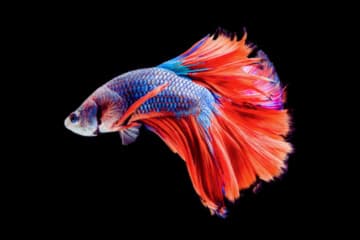
The world of exotic pets extends beneath the water’s surface, offering a captivating array of aquatic creatures that can be kept in home aquariums. From vibrant tropical fish to mesmerizing invertebrates, exotic aquatic pets bring underwater beauty to any living space.
- Fascinating World of Exotic Aquatic Pets:
Exotic aquatic pets introduce a whole new dimension to pet ownership. From vibrant tropical fish to mesmerizing invertebrates like seahorses and jellyfish, these marine creatures offer a captivating underwater experience.
- Examples of Exotic Fish and Invertebrates:
Some popular choices for exotic aquatic pets include Betta fish, clownfish, axolotls, hermit crabs, and coral reef species. Each species requires specific water conditions, filtration systems, and appropriate tank setups to thrive in a home aquarium.
- Creating and Maintaining a Suitable Aquatic Environment:
Maintaining a healthy aquatic environment involves proper water quality management, temperature control, and adequate filtration systems. Understanding the unique needs of each species and providing them with a well-maintained habitat ensures their longevity and well-being.
Considerations for Prospective Exotic Pet Owners:
Exotic pets can be a great addition to a family, but they require much care and attention. Before you bring an exotic pet home, it is essential to do your research and ensure you are prepared for the responsibility.
Here are some of the most important considerations to keep in mind:
- Legality: Check with your local authorities to see if owning the type of exotic pet you want is legal. Some animals are illegal to own in certain areas, or you may need a permit to hold them.
- Ethics: Think about the ethical implications of owning an exotic pet. Are you taking the animal away from its natural habitat? Are you contributing to the decline of the species?
- Care: Ensure you have the time and resources to care for your exotic pet properly. They may need a special diet, habitat, or veterinary care.
- Cost: Exotic pets can be expensive to watch for. Consider the cost of food, housing, and veterinary care before deciding.
- Your lifestyle: Make sure that an exotic pet fits your lifestyle well. Do you have enough time to spend with your pet each day? Can you provide a suitable environment for your pet?
Once you have considered these factors, you can start researching specific exotic pets. Many resources are available online and in libraries to help you learn more about different species.
Exotic Pet Care and Health:
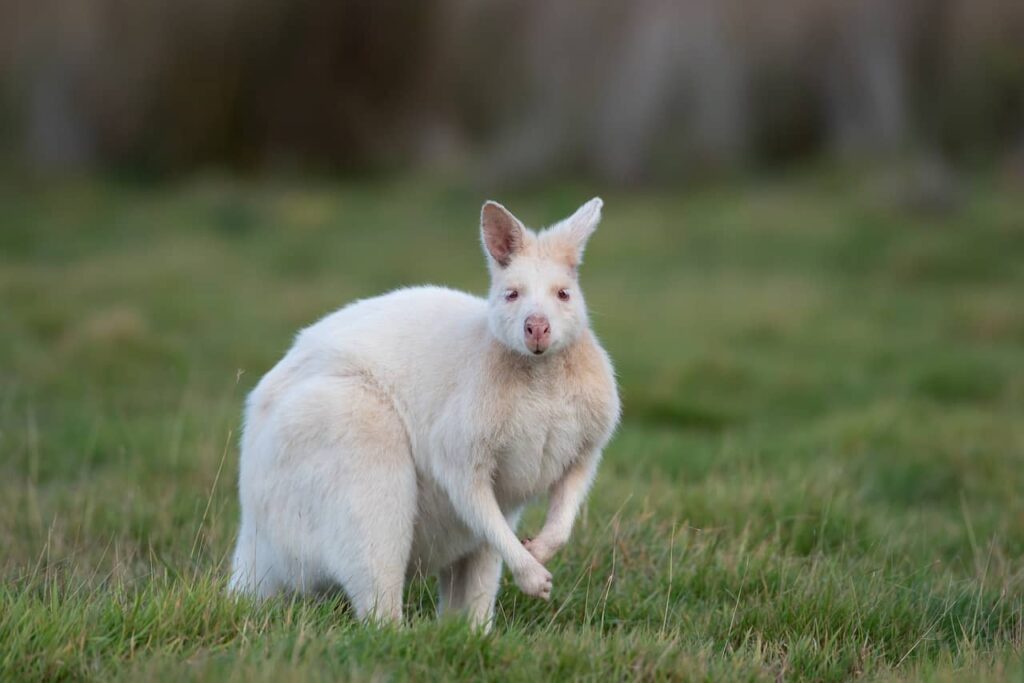
Exotic pets can be a great addition to a family, but they require much care and attention. Here are some tips for ensuring the health and well-being of your exotic pet:
- Finding a Knowledgeable Exotic Pet Veterinarian:
Maintaining your exotic pet’s health is essential for longevity and quality of life. Finding a qualified veterinarian with expertise in exotic animal care is required. Regular check-ups, preventive maintenance, and quick treatment of illnesses or injuries contribute to your pet’s overall well-being.
- Regular Healthcare Measures for Exotic Pets:
Similar to traditional pets, exotic pets require routine healthcare measures. These may include vaccinations, parasite prevention, dental care, and grooming. Regular veterinary visits and following a tailored healthcare plan are vital for keeping your exotic pet in optimal health.
- Detecting Signs of Illness or Distress in Exotic Pets:
Understanding the signs of illness or distress in exotic pets is vital for early detection and timely intervention. Attention to changes in behavior, appetite, physical appearance, or bathroom habits can help identify potential health issues. Promptly consulting with a veterinarian when any concerns arise ensures appropriate care for your exotic pet.
Responsible Exotic Pet Ownership:
Responsible exotic pet ownership goes beyond meeting their basic needs. Consider the following aspects:
- Providing a Stimulating and Enriching Environment:
Exotic pets thrive in environments that offer mental and physical stimulation. Providing appropriate toys, activities, and opportunities for exploration enhances their overall well-being. In summary, creating an enriching environment helps prevent boredom, promotes natural behaviors, and fosters a strong bond between you and your pet.
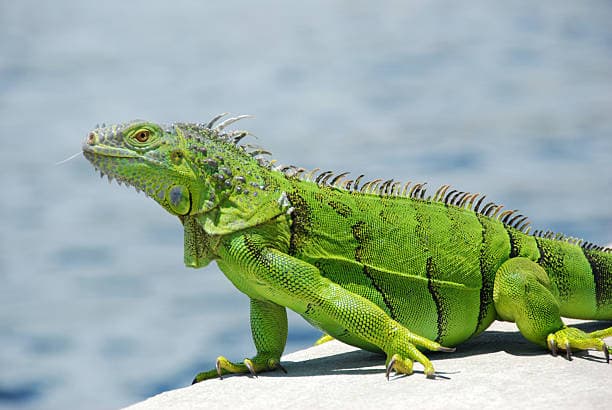
- Addressing the Social and Behavioral Needs of Exotic Pets:
Like other animals, exotic pets have social and behavioral needs that should be fulfilled to ensure their happiness. In overview, researching and understanding the specific requirements of your pet’s species, such as the need for companionship or mental challenges, allows you to create an environment that meets their needs.
- Promoting Responsible Breeding and Conservation Efforts:
Responsible exotic pet ownership includes supporting initiatives aimed at conservation and sustainable breeding practices. In summary, obtaining exotic pets from reputable breeders or adopting from rescue organizations is essential. By avoiding the illegal wildlife trade and promoting responsible breeding, you contribute to the welfare and conservation of these fascinating animals.
Conclusion:
Choosing the best exotic pet requires careful consideration of various factors, including specific care requirements, legal aspects, and your level of commitment. Understanding the unique needs of exotic pets and providing responsible ownership allows you to enjoy a fulfilling and rewarding relationship with your extraordinary companion. Remember, with great care and love, your exotic pet will bring joy and wonder for years.
What are some popular exotic pets?
Popular exotic pets include reptiles like bearded dragons and ball pythons, small mammals like hedgehogs and sugar gliders, birds like parrots and cockatiels, and aquatic pets like tropical fish and axolotls.
Are exotic pets legal to own?
The legality of owning exotic pets varies depending on your location and the specific species. Researching and complying with your area’s laws and regulations to ensure legal ownership is essential.
How do I provide proper care for exotic reptiles?
Proper care for exotic reptiles involves providing the correct habitat, temperature, lighting, and diet specific to the species. Consulting with an experienced reptile veterinarian and thoroughly researching the particular reptile’s needs is crucial.
Are exotic pets more challenging to care for than traditional pets?
Exotic pets often have specific care requirements that differ from traditional pets. They may require specialized habitats, diets, and veterinary care. Understanding and fulfilling these unique needs is essential for exotic pets’ well-being.
What should I do if I suspect my exotic pet is sick?
Suppose you suspect your exotic pet is sick. In that case, it is best to consult a veterinarian specializing in exotic animal care. They can provide a proper diagnosis and recommend appropriate treatment based on your pet’s specific needs.
What is the most exotic pet to own?
The most exotic pet to own is an opinion, but some popular contenders include tarantulas, snakes, and monkeys. These animals are often wild-caught and can be difficult to care for, making them a challenge for even experienced exotic pet owners.
What pets are exotic?
Exotic pets are not typically kept as pets in the United States. They can include reptiles, mammals, birds, and amphibians. Some popular exotic pets have ferrets, hedgehogs, sugar gliders, bearded dragons, and chameleons.
What is the safest exotic pet?
There is no one “safest” exotic pet, as all animals have the potential to be dangerous. However, some lesser-known exotic pets, such as capybaras, kinkajous, and fennec foxes, are generally considered more docile and easy to care for than some popular options.
What are the cutest exotic animals?
Some of the cutest exotic animals include hedgehogs, sugar gliders, capybaras, and fennec foxes. These animals are all relatively small and have playful personalities, making them popular choices for people looking for a unique and cuddly pet.
How do I choose an exotic pet?
There are a few things to consider when choosing an exotic pet, including your lifestyle, experience level, and budget. It is also essential to research to ensure you can provide the proper care for the animal you choose.
What is the disadvantage of exotic pets?
In general, exotic pets are not stronger than domestic pets. However, some exotic animals, such as big cats and primates, can be dangerous if mishandled. Before you bring one into your home, knowing the potential risks associated with any exotic pet is essential.
What is the disadvantage of exotic pets?
A few disadvantages to owning an exotic pet include the cost of care, the difficulty of finding a veterinarian specializing in exotic animals, and the potential for the animal to be dangerous. It is essential to weigh the pros and cons carefully before you decide to get an exotic pet.
What is the most expensive exotic pet to own?
The most expensive exotic pet to own is a Kinkajou. These animals can cost upwards of $10,000 and require specialized care. Other expensive exotic pets include Savannah cats, Fennec foxes, and Capybaras.


